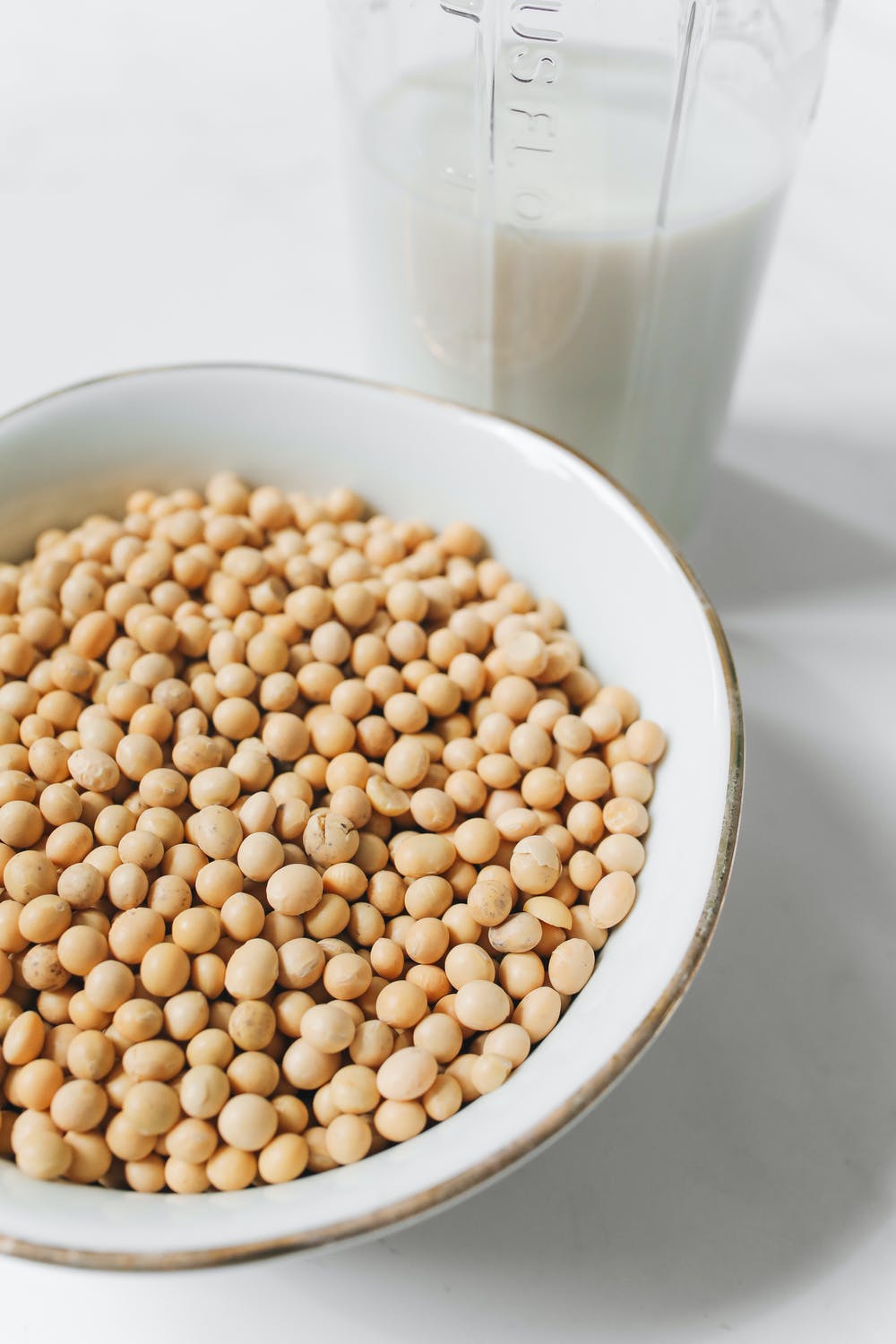
Like dairy, soy tends to generate a lot of opinions, people either love it or hate it. And when it comes to soy and fertility, there’s no shortage of conflicting advice. We took a step back and looked into what the evidence actually says about soy and fertility.
Soy and Fertility: What’s the Connection?
Soy and foods made with soy contain a compound called isoflavones. Isoflavones are a phytoestrogen, meaning they have the ability to act like oestrogen in the body, but with weaker effects. They can bind to our oestrogen receptors and cause either weak oestrogenic or anti-oestrogenic effects. Importantly, phytoestrogen behave differently depending on the oestrogen environment, that is, whether there is a lot or a little human oestrogen present.
Since soy is the main source of phytoestrogen in our diet, quite a bit of research has been done looking at how it affects our hormones. Evidence from a systematic review and meta analysis suggests that in premenopausal women, soy intake reduces the levels of some of our reproductive hormones (FSH and LH), and increases menstrual cycle length by about 1 day. The authors were keen to point out that the evidence for this was weak and many of the studies looked at had a high level of bias. But this does support the idea that soy intake (at some level of consumption or supplementation) has an affect on fertility, but is that a positive or negative one?
Soy and Fertility Studies
A small study in women trying to conceive who had secondary amenorrhea (that is where regular periods stop), gave 36 women 6 g/day of black soybean powder and compared them to 34 controls who did not get soybean powder. In the soy group, they found improved ovulation in 12 patients and 4 pregnancies whereas in the control group, only 2 had improved ovulation and no pregnancies occurred.
On the other hand, in the Adventist Health Study, a large cross-sectional analysis, found that women with the highest intake of soy isoflavones were 13% more likely to have never been pregnant. Unfortunately, with the data available the authors couldn’t distinguish between involuntary and voluntary childlessness so this study is of very isn’t actually useful in discussing fertility!
Soy and Fertility: IVF studies
Like in many areas of fertility nutrition, the best evidence for soy and fertility comes from studies in IVF. While most of these have been small studies, all show a benefit of soy intake or supplementation.
In a prospective cohort of women undergoing IVF in the US, the odds of achieving a live birth during were 77% higher for women with the highest intake of soy than for women who did not consume any soy products.
In another IVF study, high doses of isoflavone supplements (1500mg/d) were shown to increase clinical pregnancy rates, with 39% of those supplemented conceiving vs. 20% of those not supplemented.
One study found that isoflavone supplement may reverse the negative effects that repeated doses of clomiphene citrate can have on endometrial thickness. They found that at high doses of isoflavone supplements (1500mg/d) endometrial thickness was significantly increased.
A randomised control trial in couples treated with clomiphene citrate and timed intercourse supported this even at lower doses of isoflavones (120mg/d). They found as well as significantly increasing endometrial thickness, serum progesterone and clinical pregnancy rate were all significantly higher in the supplemented group.
TLDR:
Looking at the evidence as a whole it seems clear that if anything, soy is likely to benefit fertility, especially for those undergoing IVF or ovulation induction with clomiphene citrate.
Want to know more about how food affects ovulation? Check out our Optimising Ovulation Course.
back to top
Foodbaby WAS FOUNDED on Kulin Nation land. We acknowledge the Wurundjeri people, Indigenous Australians, who are the Traditional Custodians of this land. We pay our respects to all Aboriginal and Torres Strait Islander Peoples and their Elders past, present and emerging.
Fertility dietitian, cycles nerd, lover of food and squishy newborn baby cuddles. I help people get pregnant (fast) and have the healthiest pregnancies possible.
Hey, I'm Ami
@foodbabyfertility